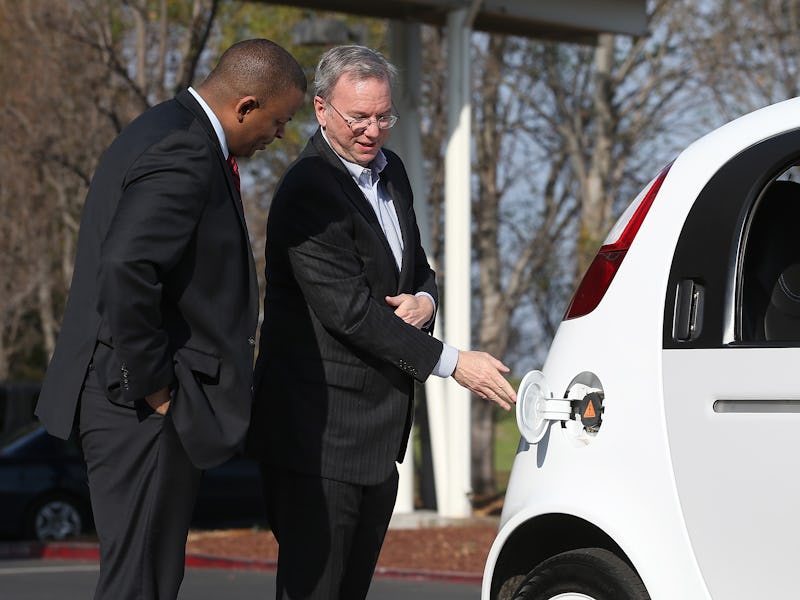Driverless Cars Can Stop Traffic Before it Starts by Combating 'Selfish Routing'
For a traffic network to commute at optimal speeds, a few individuals have to slow down.

Here’s the problem: Prolonged travel time is for bozos so drivers all independently take roads they believe will get them to their destinations the fastest. As a result of individually optimized decisions, the streets become suboptimal for all. Compounding this issue, technologies like GPS and Google facilitate route-roulette, resulting in massive numbers of people making similarly flawed, traffic-causing decisions. Traffic researchers call refer to compounding bad decisions as “selfish routing.” The prescription is, predictably, “unselfish routing.” But who want to take the slow lane?
To calculate what happens when a few drivers rise above the anarchy, as a trio of urban computing experts from the Massachusetts Institute of Technology wrote Tuesday in the journal Nature Communications, is to witness a faster equilibrium. By tracing the mobile phones of billions of drivers (scrubbed into anonymity) in five cities — San Francisco Bay Area, Boston, Rio de Janeiro, Lisbon and Porto in Portugal — the researchers constructed a selfish routing model; according to their research, people in Rio — the slowest city — tack on an additional 2.6 minutes thanks to selfish routing. But if you could increase awareness of “overall social good” to the theoretical maximum, total travel time in a given city could shrink by up to 30 percent (though that shrinkage is parceled out in minute or so increments to the average driver).
These findings raise a host of practical questions, the most pressing of which are: Why would anyone want to take a slower route to help, you know, randos? And even if we had that Bernie Sanders heart of socialist gold, how could we figure out which slow roads would help our fellow commuters?
The MIT team envisions, for instance, adding an optional decongestive route to our driving apps. But another possibility — and one that lacks overcoming ego or the human instinct for urgency — is autonomous cars. As a networked system, a fleet of driverless cars could be a wrinkle in this picture of road warrior selfishness. With a big-picture sense of the urban vehicular hive, an individual car could autonomously take a slightly longer path, thus freeing up space for everyone else.
Along with improved safety, improved commuting is supposed to be the driverless car’s salvation. Unless it isn’t. Driverless cars could make congestion worse, the opposing argument goes, if instead of a pooled fleet we see a jump in individually-owned cars. If unselfish algorithms would be enough to mitigate larger traffic numbers remains to be seen. But it’s something we should welcome. After all, what’s a few more minutes in an autonomous car if you’re just going to be watching Netflix?